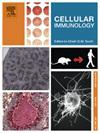METTL3 promotes infantile pneumonia-induced lung injury by the m6A-TBL1XR1-ACSL1 axis
IF 2.9
4区 医学
Q2 CELL BIOLOGY
引用次数: 0
Abstract
Background
Methyltransferase-like 3 (METTL3) is the catalytic subunit of methyltransferase complex that catalyzes mRNA methylation and has been identified to be involved in lipopolysaccharide (LPS)-induced lung cell injury. In this study, we investigated whether METTL3 is involved in the progression of infantile pneumonia (IP)-induced lung injury and its underlying mechanism.
Methods
WI-38 cells were exposed to LPS to induce in vitro proliferation, inflammation, apoptosis, and ferroptosis. The mRNA and protein levels of METTL3, TBL1XR1, IGF2BP1/2/3, and ACSL1 were measured by qRT-PCR and western blotting, respectively. The N6-methyladenosine (m6A) modification was analyzed using a methylated RNA immunoprecipitation assay. Protein interactions were determined using a Co-IP assay. LPS-induced pneumonia in mice was used for the in vivo analysis.
Results
METTL3 was highly expressed in IP and LPS-induced WI-38 cells. Knockdown of METTL3 reversed LPS-induced apoptosis, inflammation, and ferroptosis in vitro and in vivo and improved LPS-induced lung injury and collagen deposition in lung tissues of IP mice. Mechanistically, METTL3 induces TBL1XR1 m6A modifications and stabilizes its expression in an m6A-IGF2BP1-dependent manner. Functionally, the protective effects mediated by METTL3 silencing in LPS-treated WI-38 cells were reversed by TBL1XR1 overexpression. In addition, TBL1XR1 interacts with ACSL1, and METTL3 regulates ACSL1 expression via TBL1XR1. Further functional analysis showed that TBL1XR1 deficiency suppressed LPS-induced apoptosis, inflammation, and ferroptosis, which were abolished by ACSL1 up-regulation.
Conclusion
METTL3 stabilized TBL1XR1 expression through IGF2BP1-m6A methylation, promoting LPS-induced IP lung injury by upregulating ACSL1 expression.

METTL3通过m6A-TBL1XR1-ACSL1轴促进婴儿肺炎诱导的肺损伤。
背景:甲基转移酶样3 (METTL3)是甲基转移酶复合体的催化亚基,催化mRNA甲基化,已被确定参与脂多糖(LPS)诱导的肺细胞损伤。在这项研究中,我们研究了METTL3是否参与婴儿肺炎(IP)诱导的肺损伤的进展及其潜在机制。方法:采用LPS诱导WI-38细胞体外增殖、炎症、凋亡和铁下垂。采用qRT-PCR和western blotting分别检测METTL3、TBL1XR1、IGF2BP1/2/3和ACSL1 mRNA和蛋白水平。采用甲基化RNA免疫沉淀法分析n6 -甲基腺苷(m6A)修饰。用Co-IP法测定蛋白质相互作用。lps诱导小鼠肺炎用于体内分析。结果:METTL3在IP和lps诱导的WI-38细胞中高表达。敲低METTL3在体外和体内逆转lps诱导的凋亡、炎症和铁下垂,改善lps诱导的IP小鼠肺损伤和肺组织胶原沉积。在机制上,METTL3诱导TBL1XR1的m6A修饰,并以m6A- igf2bp1依赖的方式稳定其表达。功能上,在lps处理的WI-38细胞中,METTL3沉默介导的保护作用被TBL1XR1过表达逆转。此外,TBL1XR1与ACSL1相互作用,METTL3通过TBL1XR1调控ACSL1的表达。进一步的功能分析表明,TBL1XR1缺乏抑制lps诱导的细胞凋亡、炎症和铁凋亡,而ACSL1上调可消除这些功能。结论:METTL3通过IGF2BP1-m6A甲基化稳定TBL1XR1表达,通过上调ACSL1表达促进lps诱导的IP肺损伤。
本文章由计算机程序翻译,如有差异,请以英文原文为准。
求助全文
约1分钟内获得全文
求助全文
来源期刊

Cellular immunology
生物-免疫学
CiteScore
8.20
自引率
2.30%
发文量
102
审稿时长
30 days
期刊介绍:
Cellular Immunology publishes original investigations concerned with the immunological activities of cells in experimental or clinical situations. The scope of the journal encompasses the broad area of in vitro and in vivo studies of cellular immune responses. Purely clinical descriptive studies are not considered.
Research Areas include:
• Antigen receptor sites
• Autoimmunity
• Delayed-type hypersensitivity or cellular immunity
• Immunologic deficiency states and their reconstitution
• Immunologic surveillance and tumor immunity
• Immunomodulation
• Immunotherapy
• Lymphokines and cytokines
• Nonantibody immunity
• Parasite immunology
• Resistance to intracellular microbial and viral infection
• Thymus and lymphocyte immunobiology
• Transplantation immunology
• Tumor immunity.
 求助内容:
求助内容: 应助结果提醒方式:
应助结果提醒方式:


